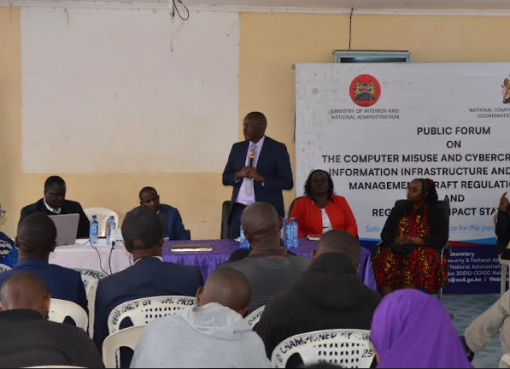The Kenya Tobacco Control Alliance has urged the government not to allow into the Kenyan market the sale of banned nicotine pouch Lyft.
The Anti-tobacco crusaders have accused the Lyft manufacturer, British American Tobacco (BAT), of trying to amend laws to suit its ‘highly addictive’ narcotic product.
They have instead vowed to oppose any mutilation of the Tobacco Control Act to favour the sale of banned nicotine pouch Lyft in Kenya.
In a statement sent to newsrooms today, KETCA National Chairman Mr Joel Gitali stated that the product should not be in the market in the first place, stating that the government should not reward the tobacco company by allowing it to sell an illegal product.
“That is rewarding impunity. Why did they not ask for laws to govern their product before they brought it to the markets,” questioned the statement signed by Gitali in part.
Ministry of Health in early February ruled the sale and distribution of BAT nicotine pouches, trading under Lyft brand, be done under the Tobacco Control Act, a move that would place the nicotine pouches under similar taxation and marketing restrictions that are imposed on cigarettes and other tobacco products.
Kagwe had said that the nicotine pouches do not meet the descriptions as outlined in the Act and their sale to the public contravenes the law.
This followed the decision by the Ministry of Health Cabinet Secretary, Mutahi Kagwe to declare “nicotine pouches” illegal, thus overturning a decision last year by the Pharmacy and Poisons Board (PPB) to license the manufacture and sale of nicotine products in the country.
But British American Tobacco (BAT) early this month protested plans by Kenya’s Health Ministry to classify its nicotine pouches as tobacco products regulated under the tobacco control law.
The British parent company BAT Plc disclosed their Kenyan unit had stepped up talks with the government to address a regulatory dispute that has halted the sale of the nicotine pouches, which trade locally under the Lyft brand.
The manufacturers in a meeting with the Ministry of Health on Monday instead made several demands for the return of their product.
Key in their demands were that BAT be allowed to urgently sell 400,000 cans of its nicotine pouches freely outside any law for one year because they are about to expire.
BAT further requested that they be allowed to advertise its nicotine products and use a harm reduction concept of convincing smokers the product is less dangerous than cigarettes.
BAT, however, says the Lyft product is a safer alternative to cigarettes which have been linked to increased risk of contracting life-threatening diseases such as cancer as well lung and heart diseases.
The anti-tobacco crusaders have instead called on the government to halt any further unnecessary interactions between the tobacco industry and our government officials because they are a violation of our laws and may lead to compromise of public health officials.
By Alice Gworo





